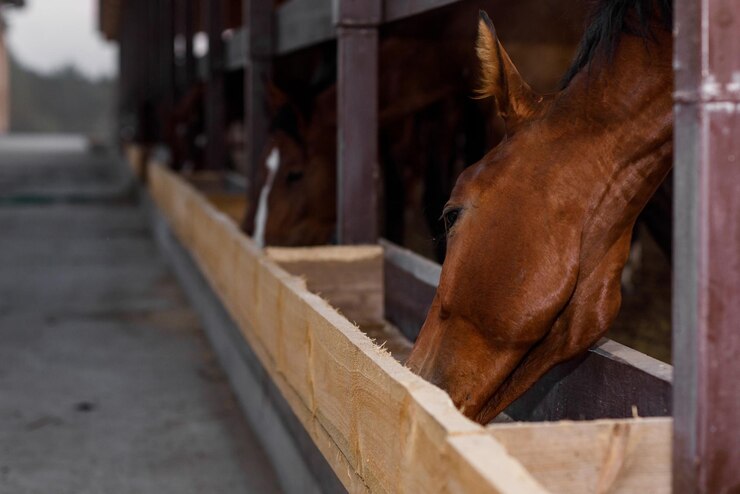Understanding the crucial water requirements for horses is essential for maintaining their health and well-being. Horses, like humans, rely heavily on adequate hydration to support various bodily functions. In this article, we will delve into the factors influencing horse hydration, and how to ensure your equine companion is receiving the right amount of water.

Why is Water Important for Horses?
Water plays a vital role in a horse’s body. It aids in digestion, nutrient absorption, and temperature regulation. Moreover, water helps in maintaining healthy joints and tissues, while also facilitating the removal of waste from the body. Without sufficient water, horses can suffer from dehydration, leading to a host of health issues.
Factors Affecting Water Requirements for Horses
1. Horse Size and Breed
The size and breed of a horse can significantly affect its water intake. Larger breeds or those with higher muscle mass typically require more water compared to smaller or lighter breeds.
2. Activity Level
Horses that are more active or engaged in intense physical activities, such as racing or jumping, will have increased water needs to compensate for fluid loss through sweating.
3. Environmental Conditions
Hot and humid weather conditions increase a horse’s water consumption as they lose more fluids through sweat. Conversely, in colder climates, horses may drink less, but it’s crucial to ensure they still have access to fresh water.
4. Diet and Feed
Diets high in dry feed, like hay, can increase a horse’s water requirements as more water is needed to help digest these foods. Conversely, horses consuming lush, green pasture may require less additional water.
How Much Water Does a Horse Need?
On average, an adult horse will drink between 5 to 10 gallons of water per day. However, this can vary based on the factors mentioned above. It’s essential to monitor your horse’s water intake and adjust it according to their individual needs and circumstances.
Signs of Dehydration in Horses
Recognizing the signs of dehydration in horses is crucial for preventing serious health issues. Common signs include:
- Dry mouth and gums
- Sunken eyes
- Lethargy or decreased performance
- Dark urine
Ensuring Your Horse Stays Hydrated
1. Provide Clean and Fresh Water
Always ensure your horse has access to clean and fresh water. Regularly check and refill water troughs or buckets. Consider investing in automatic waterers to maintain a constant supply.
2. Monitor Water Intake
Keep track of how much water your horse consumes daily. This can help you identify any changes in drinking habits that may indicate health issues.
3. Adjust Based on Weather and Activity
Increase water availability during hot weather or after intense exercise. Consider adding electrolytes to their diet to replace lost minerals.
4. Encourage Drinking
If your horse is reluctant to drink, try offering flavored water or adding a small amount of salt to their feed to stimulate thirst.
Understanding the Role of Electrolytes
Electrolytes are minerals that help maintain fluid balance in a horse’s body. During intense exercise or hot conditions, horses lose electrolytes through sweat. Supplementing with electrolytes can help maintain hydration and prevent imbalances.
Common Myths About Horse Hydration
There are several myths surrounding horse hydration. One common myth is that horses can drink ice-cold water in winter, which can lead to colic. In reality, as long as the water is not freezing, it is safe for horses to drink.
Conclusion
Maintaining proper water requirements for horses is crucial for their overall health and performance. By understanding their needs and ensuring they have access to clean and fresh water, you can help your horse lead a healthy and active life.

FAQs
1. How can I tell if my horse is dehydrated?
Look for signs such as dry gums, sunken eyes, and lethargy. Always ensure they have access to water.
2. Can a horse drink too much water?
While it’s rare, excessive water consumption can lead to health issues. Monitor their intake and consult a vet if concerned.
3. Should I add electrolytes to my horses diet?
If your horse is active or in hot climates, adding electrolytes can help maintain hydration. Consult with a vet for specific recommendations.
This article contains affiliate links. We may earn a commission at no extra cost to you.








